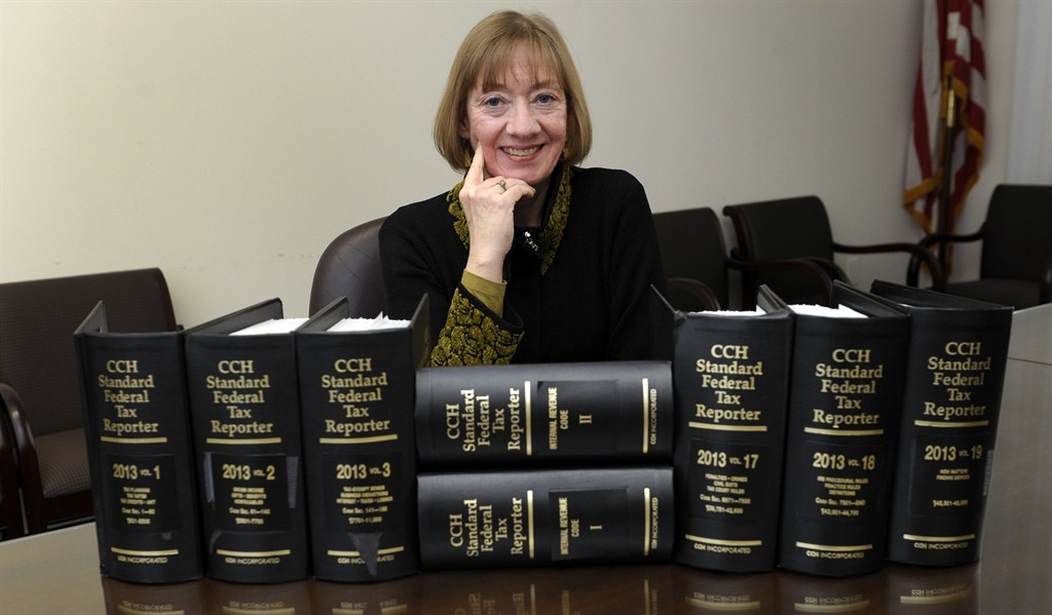Overshadowed by this week's CNBC-versus-the-Republican-presidential-nominees brawl was the release of Ted Cruz's flat tax plan. The Texas senator would impose a 10 percent tax rate on wage earners and a 16 percent tax on businesses, with no deductions. "Flatter rates," says Cruz, "will make for a more rapid-growth economy." He's right: in virtually all the cases of the last 100 years, lower tax penalties on working and investing have led to more jobs and higher incomes.
It comes on the heels of a plan from Sen. Rand Paul to adopt a 14.5 percent flat tax. For full disclosure, I'm biased -- Sens. Paul and Cruz borrowed their flat tax plans (adding a few of their own unique twists) largely from my book with Arthur Laffer, entitled "Return to Prosperity."
The bigger story here is that it's now official: every major Republican candidate has endorsed lower tax rates and fewer loopholes as a way to make our federal tax code fairer and more competitive for American businesses.
The spirit of tax reform is alive and well on one side of the aisle.
Too bad tax-reform fever isn't as bipartisan as it was in 1986 when by 97-3 the Senate passed the Reagan Tax Reform Act, which closed myriad loopholes and lowered tax rates.
In the modern-day "progressive" Democratic Party, there is no room for a Bill Bradley or Dick Gephardt -- two leading sponsors of tax reform in the 1980s. Even talking of lowering tax rates gets you excommunicated from the party of envy and redistribution. Very sad.
Bernie Sanders, the socialist Vermont senator who is drawing throngs of fans everywhere he goes as if he were Justin Bieber, wants tax rates back up to 70 percent or more. This sock-it-to-the-rich line is a crowd pleaser, especially with young voters, and draws thunderous applause. Hillary Clinton is right behind him with her proposed 44 percent tax on capital gains investment income.
Recommended
So, to shrink the gap between rich and poor, why not follow the Clinton-Sanders tax model?
Because soak-the-rich tax schemes rarely work.
The last time tax rates were 70 percent, back in the 1970s, the government got 19 percent of its revenues from the rich. Now with a lower top rate of about 40 percent the government gets about twice as much -- about 36 percent of all income taxes -- from the rich.
Meanwhile, the U.S. corporate tax of 35 percent is now so much higher than the rates in the rest of the world that a Tax Foundation study has recently concluded that we could raise as much money with a rate of 20 to 25 percent. That's because more businesses would come here and start paying U.S. taxes instead of Irish, Chinese or Canadian taxes. If we can get the same revenue at a lower tax rate and create more jobs at the same time, why wouldn't we take that deal? The only answer is that the left gets some kind of weird psychic income from knocking down the rich even if it benefits no one.
Liberals who have a faith-based conviction that tax rates don't matter much in terms of decisions about where businesses or jobs locate should listen to Rick Scott, the governor of Florida, where there is no state income tax at all. "My favorite governors are Cuomo (of New York), Brown (of California) and Malloy of Connecticut," he says, grinning. "The more they raise taxes, the more jobs we get in Florida. Every week new businesses are coming here to escape New York and Connecticut."
Imagine an experiment where we divided America into two tax zones. Those states east of the Mississippi River got to keep the current "progressive" tax system -- or could even go for the Clinton-Sanders utopia of higher rates. The states west of the Mississippi could adopt a flat tax modeled after what Sens. Cruz and Paul have endorsed.
Where would you choose to live?
Where would the growth of enterprise, wages and jobs happen?
























Join the conversation as a VIP Member